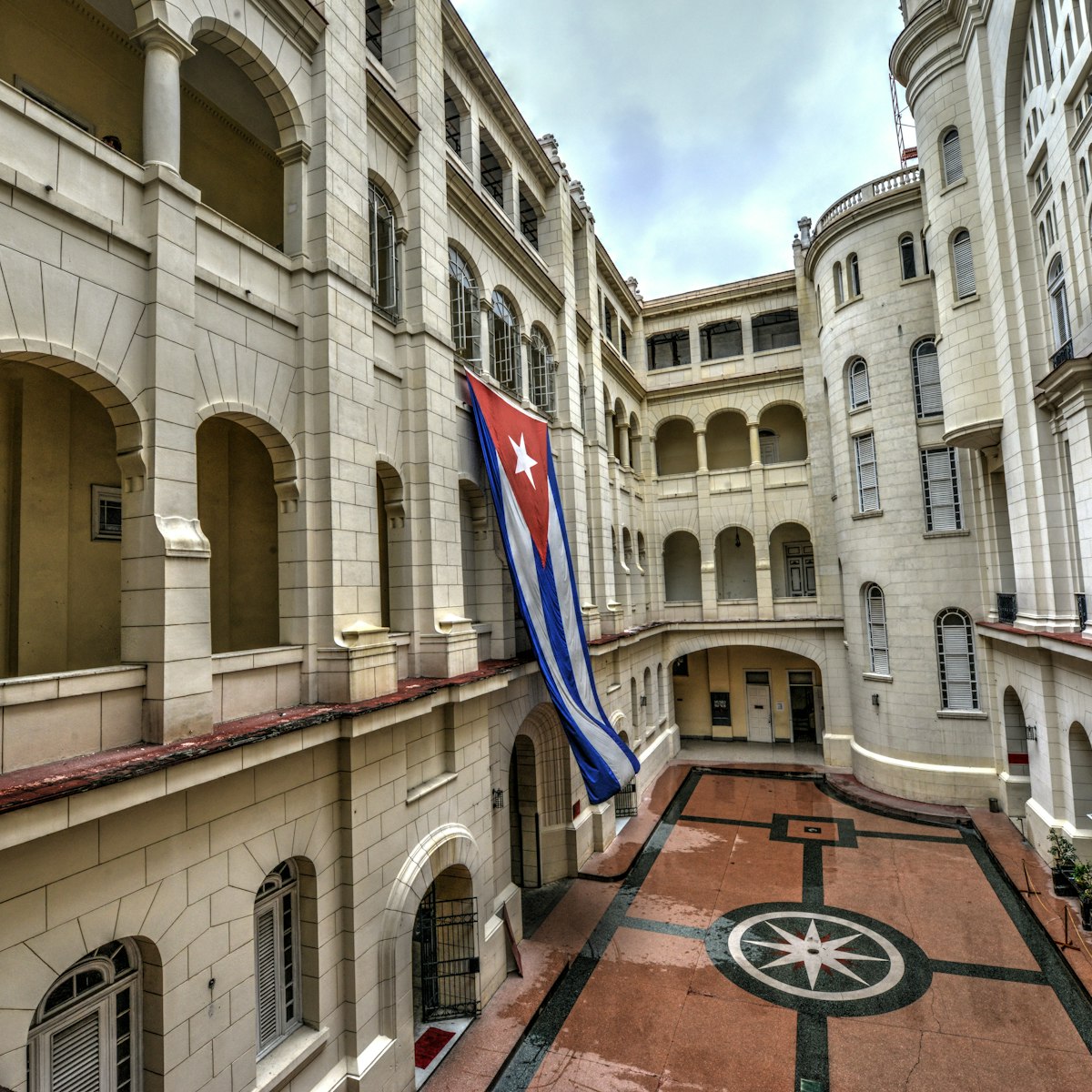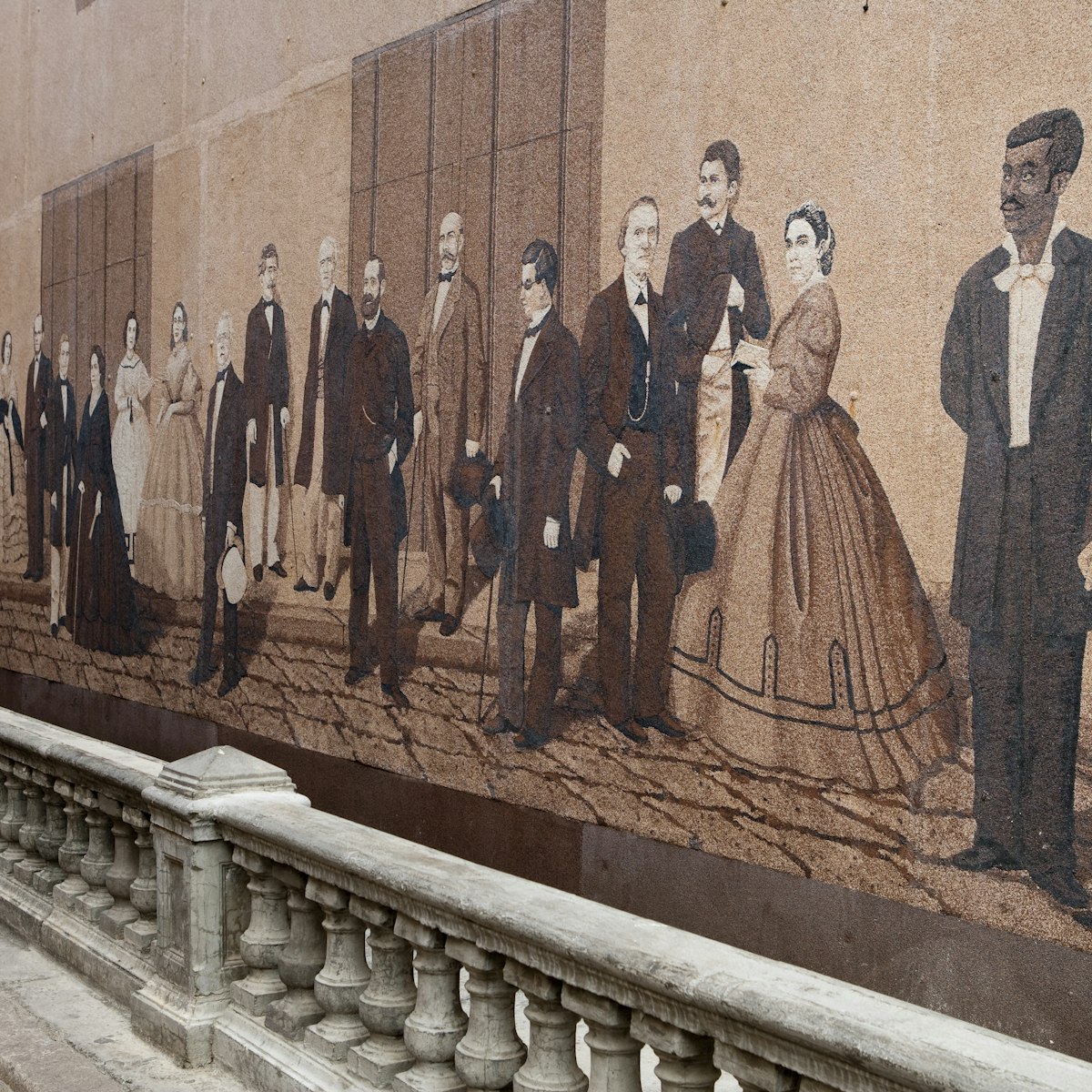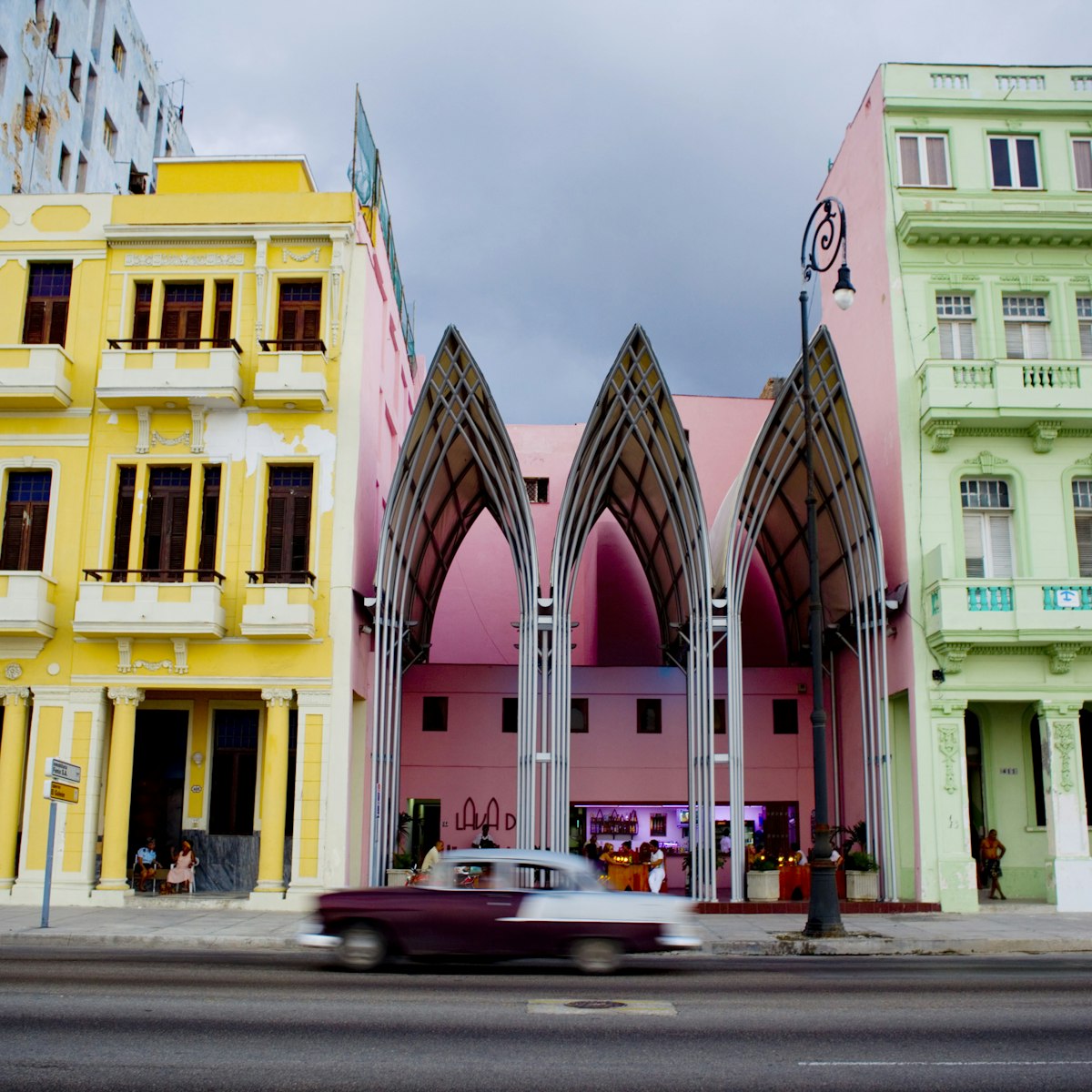The incomparable Capitolio Nacional is Havana's most ambitious and grandiose building, constructed after the post-WWI boom ('Dance of the Millions') gifted the Cuban government a seemingly bottomless vault of sugar money. Similar to the Capitol in Washington, DC, but actually modeled on the Panthéon in Paris, the building was initiated by Cuba's US-backed dictator Gerardo Machado in 1926 and took 5000 workers three years, two months and 20 days to construct, at a cost of US$17 million.
Formerly the Capitolio was the seat of the Cuban Congress, then from 1959 to 2013 it housed the Cuban Academy of Sciences and the National Library of Science and Technology. The building underwent a massive refurbishment between 2013 and 2019, reopening in time for Havana’s 500th anniversary. Guided tours leave on the hour and take in most of the main features, including the palatial hallways, the chamber of representatives and the newly established Tumba del Mambí Desconocido (Tomb of the Unknown Soldier).
Constructed with white Capellanía limestone and block granite, the building has an entrance guarded by six rounded Doric columns atop a staircase that leads up from Paseo de Martí (Prado). Looking out over the Havana skyline is a 62m stone cupola topped with a replica of 16th-century Florentine sculptor Giambologna's bronze statue of Mercury in the Palazzo del Bargello. Set in the floor directly below the dome is a copy of a 24-carat diamond. Highway distances between Havana and all sites in Cuba are calculated from this point.
The entryway is accessed by a sweeping 55-step staircase guarded by two giant statues carved by Italian sculptor Angelo Zanelli: El Trabajo and La Virtud Tutelar. The main doors open into the Salón de los Pasos Perdidos (Room of the Lost Steps, so named because of its unusual acoustics), at the center of which is a magnificent statue of La República, an enormous bronze woman standing 17.6m tall and symbolizing the mythic Guardian of Virtue and Work. The 30-tonne statue is covered in gold leaf and is the third-largest indoor statue in the world. It was carved by Zanelli in Rome and shipped to Cuba in three pieces.







